calsfoundation@cals.org
Albert King (1923–1992)
aka: Albert Nelson
Albert King, one of the most influential blues guitarists of all time, was one of the three so-called “Kings of the Blues”—the triumvirate of B. B. King, Freddie King, and himself. His style of single-string-bending intensity—the essence of blues guitar—is evident in the approaches of thousands of acolytes, including Jimi Hendrix, Stevie Ray Vaughan, and Eric Clapton.
King was born Albert Nelson on April 25, 1923, on a cotton plantation in Indianola, Mississippi. He had twelve known siblings. His father, Will Nelson, an amateur guitarist, had a major impact on his music. Though he was mainly self-taught, he was inspired by Blind Lemon Jefferson. His singing in a family gospel group at a nearby church also influenced his music. He was one of the first major blues performers to cross over into “soul,” commonly defined as a synthesis of blues and gospel.
Not much is known about King’s early years. He first played professionally in and around Osceola (Mississippi County), where he moved with his family in 1931 and where he heard such legendary Delta blues regulars as Elmore James and Robert Nighthawk while he played in a group named In the Groove Boys. In the early 1950s, he was in Gary, Indiana, where he briefly played drums behind Jimmy Reed, perhaps the most popular bluesman of the 1960s. He started recording in 1953 for the Parrot label, but he received little remuneration for that work, so he moved to St. Louis, Missouri. There, he recorded for the Bobbin and King labels. His most successful single was “Don’t Throw Your Love on Me So Strong,” which peaked at No. 14 on the rhythm and blues charts.
The most important event in King’s career was his signing with Stax Records of Memphis, Tennessee, in 1966. He was accompanied by the “house” band, Booker T. & the MG’s, one of the most skillful music ensembles of the rock era—made up of guitarist Steve Cropper, bassist Donald “Duck” Dunn, drummer Al Jackson Jr., and keyboard wizard Booker T. Jones. King honed his style in this homegrown (and independent) atmosphere, creating some of his most memorable recordings: “Born Under a Bad Sign,” “Crosscut Saw,” “I’ll Play the Blues for You,” and “As the Years Go Passing By.”
He was so popular during this time that he was booked as the opening act for the premiere presentation at San Francisco’s soon-to-be top rock and roll showcase, the Fillmore West, on February 1, 1968. Jimi Hendrix and John Mayall followed him onstage, but King stole the show and became a regular attraction at the Fillmore West. He also recorded one of his most powerful albums, Live Wire/Blues Power, there in 1968. In 1969, he recorded with the St. Louis Symphony Orchestra, becoming one of the first blues performers to unite blues and classical music.
For the rest of his life, he toured regularly and often indiscriminately. He was a curiosity in that he was left-handed and played with his guitar upside-down and backward (simply flipping over the instrument). He was of the rough and rowdy “old school.” He was reputed to carry a .45-caliber pistol in the waistband of his pants, and he was reported as keeping a ready submachinegun on his bus. But he was best known for his tireless entertainment value.
King died on December 21, 1992, in Memphis after a heart attack. There, he was honored with a jazz-style “blues funeral” procession down Beale Street with the Memphis Horns (Wayne Jackson and Andrew Love) playing “When the Saints Go Marching In.” He was buried across the Mississippi River in Arkansas in Paradise Gardens Cemetery in Edmondson (Crittenden County), near his childhood home. He was inducted into the Arkansas Entertainers Hall of Fame in 2010 and the Rock and Roll Hall of Fame in 2013.
For additional information:
“Albert King.” Rock and Roll Hall of Fame and Museum. http://rockhall.com/inductees/albert-king/ (accessed July 11, 2023).
Gordon, Robert. It Came from Memphis. New York: Atria, 2001.
Guralnick, Peter. Sweet Soul Music: Rhythm and Blues and the Southern Dream of Freedom. New York: Harper Collins, 1986.
Jim Kelton
University of Arkansas, Fayetteville
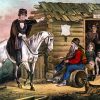 Arts, Culture, and Entertainment
Arts, Culture, and Entertainment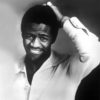 Music and Musicians
Music and Musicians World War II through the Faubus Era, 1941 through 1967
World War II through the Faubus Era, 1941 through 1967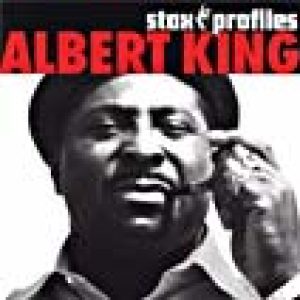 "Don't Throw Your Love On Me So Strong," Performed by Albert King
"Don't Throw Your Love On Me So Strong," Performed by Albert King 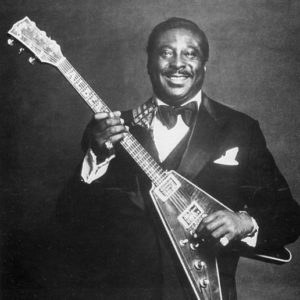 Albert King
Albert King 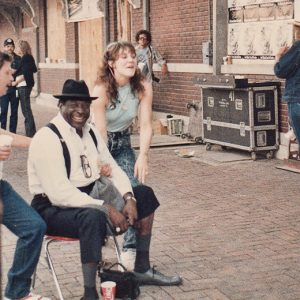 Albert King
Albert King 




He was left handed, but unlike Hendrix his guitar was still strung for a right hand. Low E on the bottom. Incredible, incredible–was very, very good.
My grandfather was his best friend; he died 5/15/2013.